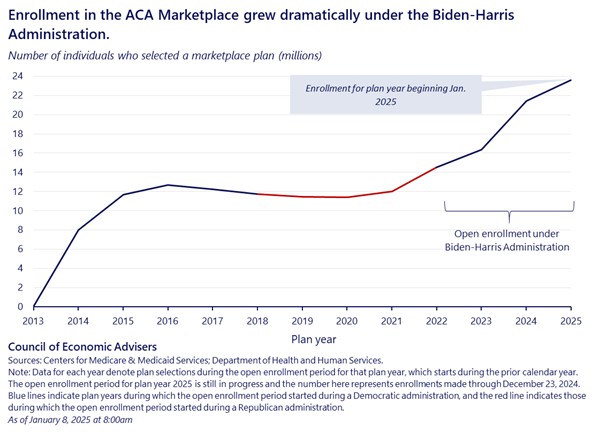
The White House announced Wednesday that nearly 24 million Americans have enrolled in health insurance through the Affordable Care Act (ACA) marketplace for 2025, marking an unprecedented surge in coverage during President Biden's term.
The latest enrollment figures represent a 9% increase from the previous year, including 3.2 million new consumers who signed up for coverage. The enrollment period remains open until January 15 for states using the federal marketplace, with some states extending deadlines until month's end.
The White House attributes this growth to several key policy changes implemented during Biden's presidency, including enhanced premium tax credits that reduced costs by an average of $800 annually for consumers. The administration also expanded outreach efforts and simplified the enrollment process.
However, the future of these expanded benefits faces uncertainty. The enhanced premium tax credits are set to expire this year, and their renewal remains unclear as political control shifts in Washington. Without an extension, experts project that 3 to 5 million Americans could lose coverage, with some families facing substantial premium increases.
For instance, a single parent earning $50,000 annually could see premiums rise by $1,600, while a retired couple making $85,000 could face an $18,000 annual increase.
The enrollment milestone comes as part of broader healthcare initiatives under the Biden administration, including Medicare drug price negotiations and expanded Medicaid coverage. Currently, the ACA covers approximately 45 million Americans through both marketplace plans and Medicaid expansion.
The Congressional Budget Office estimates that without permanent extension of the enhanced subsidies, the number of uninsured Americans could increase by over two million by 2026, growing to nearly four million annually through 2034.
The administration's healthcare achievements also include implementing a $2,000 cap on Medicare out-of-pocket costs, limiting insulin costs to $35 monthly for Medicare beneficiaries, and extending postpartum Medicaid coverage in 46 states and DC.